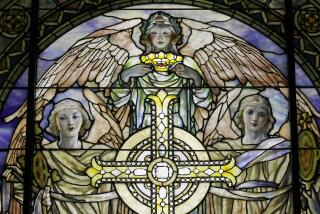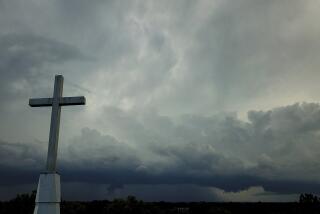Many Christians Found to Hold New Age Beliefs
- Share via
Have you talked to the devil recently? Contacted the dead? Experienced deja vu?
If so, you may be among the substantial number of Americans, including many describing themselves as Christians, who are identified by the Princeton Religion Research Center of Princeton, N.J., as participating in some New Age practices.
Based on a poll of 2,045 adults, the research center reports in its Emerging Trends publication that “a surprisingly high number” of Christians identify with beliefs identified as “New Age”--even though most say the New Age is not good for traditional religions.
The report says Catholics tend to be far more tolerant of the New Age, especially on the issue of whether New Age beliefs and traditional religion are compatible.
Among Protestants, just 23% said they think New Age practices are compatible with traditional religion, while 59% of Catholics believe they are compatible.
The Emerging Trends report, based on telephone interviews conducted from July to September, 1990, recognizes that defining “New Age” is not easy, nor is distinguishing New Age practices and beliefs from those that are more traditional.
“The New Age is not a church, not a sect, not a political party,” the report says. “It is an eclectic term for a wide range of beliefs held by some who may call themselves ‘New Agers’ or ‘Aquarians.’ ”
Among beliefs identified in the report as New Age are two that many traditional Christians share: belief in the devil and belief in life after death.
But some New Age practices are less widely accepted, such as communicating with the dead, using rock crystals to heal illness or engaging in “telekinesis,” the manipulation of physical objects through mental powers.
Asked if they believe in the devil, 62% of Protestants and 51% of Catholics said they do.
More Protestants than Catholics believe possession by the devil is a possibility: 54% compared with 43%.
Protestants, however, are less likely than Catholics to believe in life after death. Seventy-four percent of Protestants believe in an afterlife, compared with 84% of Catholics.
More to Read
Sign up for Essential California
The most important California stories and recommendations in your inbox every morning.
You may occasionally receive promotional content from the Los Angeles Times.










